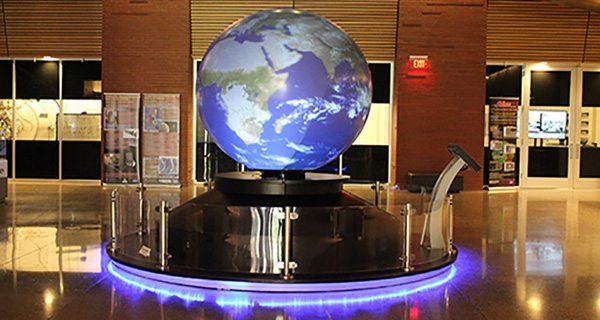When Vivek Kopparthi graduated from Arizona State University and wanted to start his own tech business, he looked no further than Arizona’s tech sector.
Kopparthi’s Scottsdale-based company, Neolight, is developing neonatal phototherapy treatment for babies born with jaundice. When it came to get the company up and running and source talent, he relied on his alma mater and the resources it had to offer.
The Valley’s low cost of living compared to California, stable climate and large workforce has made it a new destination for the technology industry as more companies move into the “internet of things.”
“We’re a very fast, hyper-developing ecosystem,” Kopparthi said of Arizona’s technology sector.
That has helped businesses across the tech sector develop in or move to Arizona, particularly the Phoenix metropolitan area. More than 2,500 jobs were added in Arizona’s technology sector in 2016 with the average salary around $98,000, according to the Computer Technology Industry Association’s 2017 report.
The area has seen a surge in startup tech companies putting down roots and moving from other parts of the country, as well as larger companies establishing a presence in the Valley. Uber, Weebly and Gainsight are just a few of the companies that have expanded their operations to the Phoenix metropolitan area.
Stephane Frijia, the Greater Phoenix Economic Council’s senior vice president of global investment, pointed out that the technology sector has had a presence in the state since World War II, when engineering for military defense revved up in Arizona. Companies like Motorola and Intel have had a presence in the Valley for decades, with Intel being the largest employer in Chandler. But he noted that it’s been more recently that people – and companies – have realized the benefits of operating in Phoenix.
“Clearly Phoenix has, the region has, a seat at the table when it comes to developed technology. On the hardware side, on the software side, on the security side,” Frijia said.
“All that stuff is happening here. The security components, the testing of the vehicles, the chips of manufacturing, all these things are being developed here in a way that’s safe, secure and creates jobs in the local market and the opportunity for others to connect with the network of architects that are here.”
Bethany Plaza, CEO of management and technology consulting firm Conscientia, said as the Valley suffered through the recession, the tech sector took a hit, but has been able to recover within the past five years, thanks in large part to consumer demand.
“I think the demand, the consumer demand overall, the way everything is run in business has changed so much,” Plaza said.
She noted that with the shift to the internet of things – connecting everyday objects such as refrigerators to the internet – more companies in different industries have technology needs, driving the industry’s growth. For example, companies in industries ranging from banking to healthcare have been trying to make information more accessible to consumers through apps and other technology, looking to companies in Arizona to make it happen.
Frijia pointed out that California-based companies often expand to Arizona because of the lower cost of living paired with the convenient location. The cost of living in Phoenix is 3 percent lower than the national average, according to PayScale and operational costs in Phoenix are estimated to be around 40 percent less than in California, according to GPEC. The area also has 32 percent more computer science and software employees than leading tech city Austin.
“I think the stability here is important, the cost of living is not as high as say LA or other places, and we’re fortunate that we’re protected from weather and things,” Plaza said.
Additionally, Arizona ranks 12th in the nation for its percentage of the workforce in the tech industry, according to the Computer Technology Industry Association. Plaza credits the state’s recovery from the recession with supporting the growth of the tech sector.
“We’re back in the stage of companies having money and when you have money, you make new products,” Plaza said. “When you’re stagnant, it’s maintenance. You’re making enough to keep the lights on.”
It’s not just startups that are finding their footing in Arizona – Silicon Valley companies are setting up operations in the Valley of the Sun, too.
When San Francisco-based ride sharing company Uber couldn’t test its self-driving cars on the streets of California, where there are heavy regulations, Arizona Gov. Doug Ducey welcomed the company to test the cars in Arizona.
Ducey had signed an executive order authorizing the testing of self-driving cars in Arizona in 2015 and put out a statement telling Uber, “California may not want you, but we do.”
Still, tech has some way to go in Arizona. The technology sector doesn’t rank in the top five industries that part of the state’s total GDP, according to the Bureau of Economic Analysis. Tourism remains the state’s largest economic driver.
Plaza said the state could market itself as a technology hub to attract more “thought leaders” and raise wages to make the state more attractive to workers.
One development that could be a hiccup for the sector’s growth, Plaza said, is recent legislation that would require companies to give sick leave and other benefits to contract workers.
“In technology, it’s driven by contract workers,” Plaza said. “The fact that they have to pay out sick leave, it’s going to have an impact.”
But Frijia is hopeful Arizona is on track to bring tech up to one of the more prominent industries in the state. JobsEQ estimates that Arizona’s sector for emerging technologies will grow by 21.9 percent over the next decade, compared to 14.3 percent nationally.
“You don’t have to go to Palo Alto or somewhere else. You can go to Tempe or to Chandler, there’s companies that can do that (technology development) and they’re doing that already,” he said.
Neolight’s Kopparthi agrees. He sourced all of the engineers from ASU, and the university helped put Neolight in touch with doctors at Phoenix Children’s Hospital. Kopparthi said ASU’s Sandra Day O’Connor College of Law also assisted with securing company registration documents and filing for patents..
“You ask for something, you always get it,” he said. “That’s how it is in Arizona.”
Story by Sophia Kunthara, Cronkite News.




